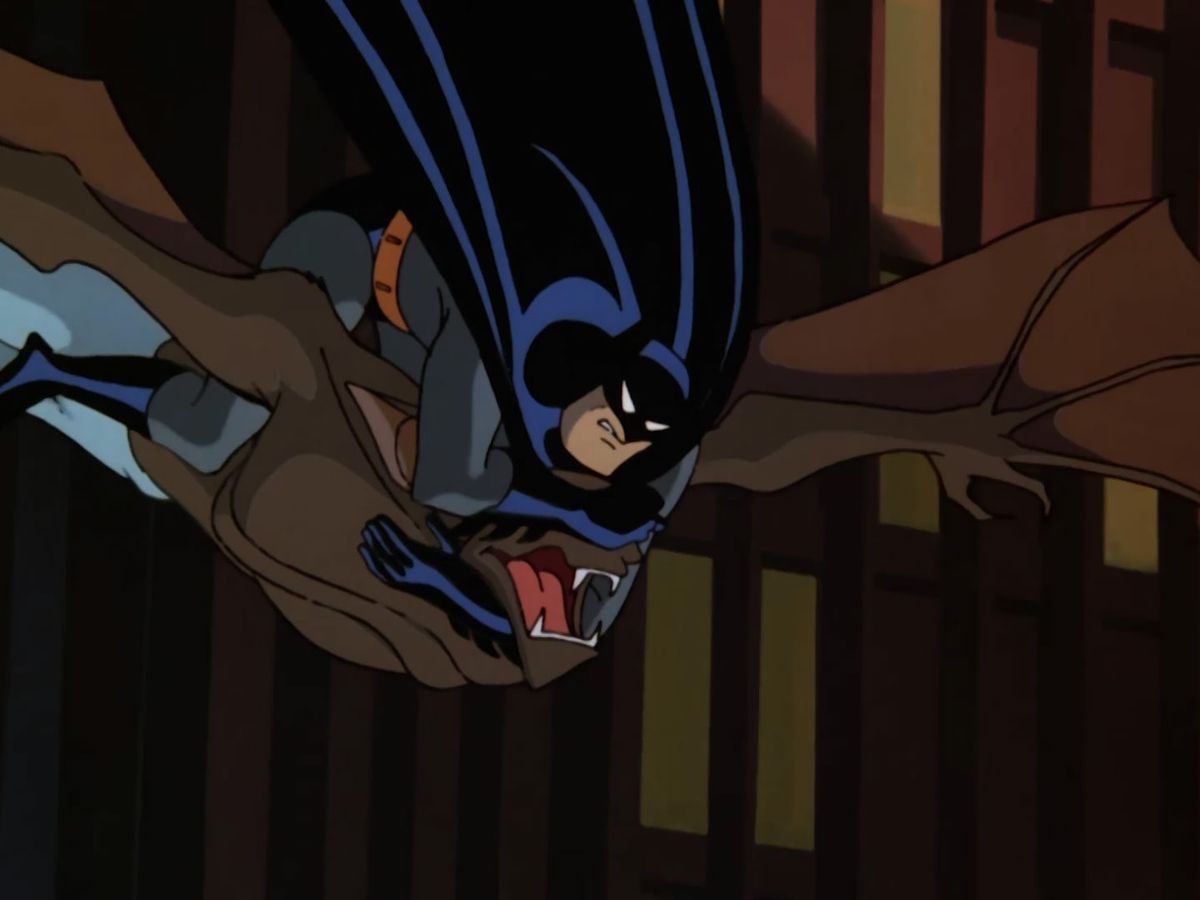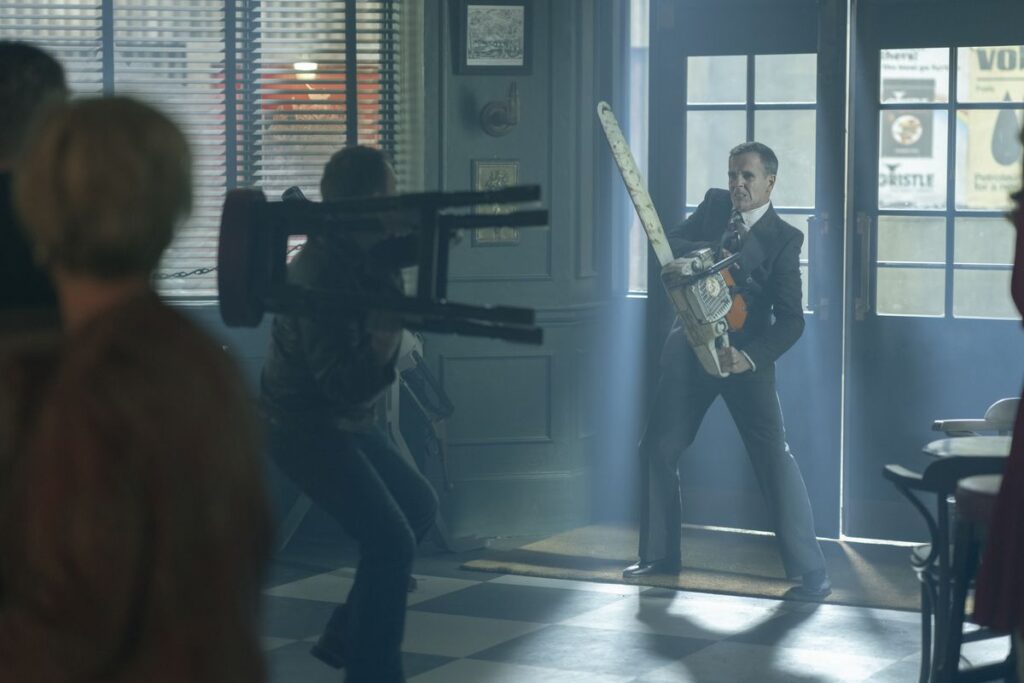Batman is one of the most popular superheroes in just about every medium. His movies are often the gold standard of comic book cinema; his comics are usually at the top of the charts (try finding a DC comic without Batman in it each month); he’s in a bunch of absolutely killer cartoons; he even broke the curse of lousy superhero video games! But if there’s a thorn in the side of the multimedia Bat-Empire, it’s live-action TV. For whatever reason, the Caped Crusader can’t have a normal-ass TV show.
Consider the new CW series Gotham Knights. The show, which premiered March 14, takes place in a Gotham City where Bruce Wayne is murdered and his secret identity as Batman is revealed to the world. His adopted son, Turner Hayes (Oscar Morgan, playing a character created for the show) is framed for the murder, and falls in with a motley crew of teen outcasts. There’s orphans Harper Row (Fallon Smythe) and her brother, Cullen (Tyler DiChiara); fellow prep school attendee Stephanie Brown (Anna Lore, playing a character known for her alter ego The Spoiler); Carrie Kelley (Navia Robinson), the current Robin (it is unclear if there have been others); and Duela (Olivia Rose Keegan), the Joker’s daughter.
Eventually, the whole gang is implicated for Wayne’s murder, and they band together to clear their names and fight the true threat: the Court of Owls, a secret society that has pulled Gotham City’s strings in secret for decades. It is, in other words, yet another attempt to make a Batman show without Batman.
TV absolutely loves a Batman-without-Batman show. They happen all the time. Gotham Knights is not dissimilar to Birds of Prey, the 2002 WB series about a version of the Huntress that was the superhuman daughter of Batman and Catwoman in a Gotham that no longer had a Batman. Fox’s Gotham hilariously contorted itself in an effort to feature all of Batman’s most famous villains but at a time when Bruce was still a child, ending with his first night out as Batman. HBO Max’s Titans at times skewed very close to being a Batman show, albeit one that endeavored to keep Batman off screen in favor of occasionally including an older Bruce Wayne. The CW’s Batwoman, while about another hero entirely, set itself in a Gotham where Batman was missing and another must pick up his mantle. And let’s not forget Pennyworth: The Origin of Batman’s Butler, a title that could not be more clear as to what executives think they’re doing here.
When it comes to TV, Batman’s superpower is absence. He’s a name to invoke in order to get people to show up — and hopefully not be too mad about the bait-and-switch you’re pulling. For a long time, the reason for Batman’s weird TV status came down to brand maintenance. As the only truly successful superhero franchise in Hollywood, Warner Bros. executives did not want to dilute the Bat-Brand, especially in an era when TV was considered inferior to film. (Smallville, the long-running show about a young Clark Kent, famously began its life as a show about Bruce Wayne.)
Batman was simply off-limits for TV, and it’s possible that he still is: The forthcoming HBO Max shows spinning out of Matt Reeves’ The Batman focus on the Penguin and Arkham Asylum, just outside of Batman’s grasp. This is an odd sentiment, as some of the characters’ biggest successes came from TV: First in the ’60s show starring Adam West that spurred a full-on Bat-Mania, and again in 1992’s Batman: The Animated Series, which kicked off a whole universe of animated DC shows and established animation as a home for smart superhero stories that catered to kids and adults.

Image: Warner Bros. Animation
Gotham Knights arrives at an odd time in superhero storytelling. In some ways, it feels like the end of an era. The CW’s long-running Arrowverse is coming to an end with this season of The Flash, and while the show isn’t the only non-Arrowverse DC series on the network — there’s also Stargirl and Superman & Lois — it might be the last. This might be why it feels like a throwback to another era of superhero television, where comic book characters have their names transposed over generic archetypes that bear little resemblance to the source material — like the villains of Lois & Clark or whatever Mutant X was.
Yet in centering itself around the void of an absent Batman — the cast’s entire mission involves the hero’s death and unfinished business — Gotham Knights does not offer a reason of its own to tune in. This, ironically, is something the Arrowverse managed to do for more than a decade, barred from getting anywhere near Batman until almost the very end. Those shows plowed ahead with what they had, instead of constantly calling attention to what they didn’t.
Gotham Knights airs on The CW on Tuesdays at 9 p.m. EDT, with episodes streaming on the CW app.

